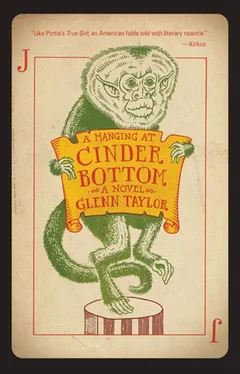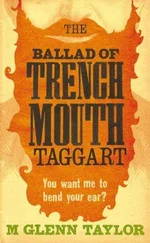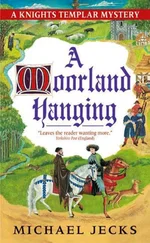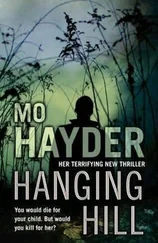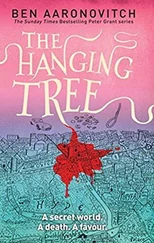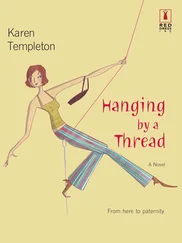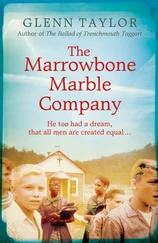At that time, Moon had been president of the Radiant Moon Consolidated Card Company for two years. Everyone in the harbor knew not to cross him.
He stopped Abe’s blood with the fine starched shirt off his back. He used his necktie to cinch it tight, and when the police came, they nodded respectfully at him and said, “Mr. Moon, good evening.” He nodded back and stood there shirtless, lighting a cigar with his big bloodied hands.
The policemen knew he walked the harbor at night, watched the docks where his crates full of cards were loaded and shipped off to Norfolk and Savannah. They knew he wasn’t the kind to shoot a man in the back for no good reason.
That same night, Ben Moon took young Abe to the home of his personal tailor, who awoke and fed Abe amber whiskey before stitching the cut closed with his finest six-cord thread, and two weeks later, when his face had healed sufficient, Abe was sent back to the tailor, this time with a note from Moon to make the young man four fine suits. Moon had come to understand the rarity of Abe’s intelligence and hand mechanics by then, and it wasn’t long before he sent him out on the mainlines to every East Coast town worth a damn, and in those towns Abe played the role of card salesman for the Radiant Moon Playing Card Company, a square paper by all appearances. He wore his fine suits and carried a leather grip full of sealed and unsealed card decks, but Abe Baach was no square paper. He was a confidence man with five fake names. In April of 1910, where he was headed, he’d not be able to use any of them.
THE PULPIT WOULD HAVE WHEELS
April 21, 1910
The journey from Baltimore to Keystone had been a long and fractured locomotion. When the long train crossed the state line into West Virginia, Abe tapped his foot seven times upon the rumbling carriage floor, one for each year he’d been gone. Despite the lengthy absence, he knew every high trestle, every roaring downgrade. He recognized in the echoed sound of the steam whistle a loneliness only heard where hills grow close as camel humps, the narrows between them waiting on floodwater.
The engineer blew his whistle again at the last crossing before town. The engine slowed at the switch, its brakes rattling hard. Inside the passenger car, Abe watched the people sway together in perfect time, a traveler’s muted dance. Their fingers and toes were gripped and steadied by habit, and they looked through windows bleared by coal dust. The hillsides rolled by slow on either side, steep-banked and the purest green. It was early afternoon. The sun held its angle and warmed the earth.
Abe sat alone in a wide-backed coach chair. His big leather grip was flat on the seat beside him, a duffel on top. He studied what passed outside his window. A tipple clutching the hill. A line of beehive coke ovens with two men to a hole, one for the wheelbarrow and the other for the shovel. The train lurched. He could see up ahead now the bridge at Elkhorn Creek, the square brick buildings on Railroad Avenue, more of them than when he’d left. Between the buildings were packed-dirt alleys staked and strung across with clothesline — white sheets agitating in the wind, silent, like flags.
The train slowed at the new N&W passenger station. It was of the board-and-batten variety, its tin roof sharp-angled and striped by the shadow of two chimneys. KEYSTONE was painted in red across the building’s side. Out front, two buckboard wagons were stacked double with whiskey kegs. A boy stood and waited for someone, his trousers hitched high above his waist, a man’s black bowler hat in his hand. Beside him, a policeman leaned against a post and checked his watch. The train came to a full stop. It hissed. Abe tucked his chin, picked up his suitcase and duffel, and jumped from the coach to the platform before the brakeman could set out the stool. It was half past noon.
He walked past the policeman with his head low and his hat pulled down. He nodded hello to a good-looking woman in a plaid skirt, and he snorted at the wind to catch sin’s direction. It blew from where it always had, the windows of the saloons and houses of ill fame across Elkhorn Creek. It blew steady from Cinder Bottom.
The Alhambra Hotel was due south, just past the bend. He did not so much as turn his head in its direction.
Nearing the bridge, Abe regarded the water below. It rolled quiet over jutted stones, its color black and its level as low as Abe had ever seen it in spring. Still, evidence of flood times abounded on the banks. A wardrobe with the doors torn off. A bed frame split in two. Like bones in the mud, they held until the next one came. The bridge’s boards were fresh cut, and they’d be fresh cut again before long.
At the middle, he spat.
He breathed in the smell of sawdust and dirty water and coke-oven ash. He looked across the bridge to the Bottom, the place that had born and raised him. The streets were yet to be cobbled, a testament to dirt’s resilience. Men and women stood upon them and talked, their features unknown from where Abe stood. There were more of them than he’d ever seen, and payday was still a day off.
He put down his suitcase and duffel long enough to adjust his new pistol, secure at the small of his back. Then he walked across the bridge and onto the main thoroughfare, where a man had fallen down drunk next to a horse-drawn wagon. He was snoring, and three little boys stopped to watch him, passing a poke of hard candy and laughing. One of them kicked the drunk in the armpit, but the man did not stir. The owner of the horse and buggy emerged from the doors of the wholesale grocers. He shooed the boys, stuck his fingers in his mouth, and whistled for a policeman. Four of them leaned against the slats of a saloon up ahead. They looked, then went back to talking.
Abe walked down the middle of Bridge Street. It was good to be back in a place cinched by hills. On all sides, they rose up and watched over man’s thin attempt at living.
He noted the new clocktower, the fancy striped awnings that stuck out everywhere, some of them lined in fringe. Telegraph wires hung between rough-hewn poles full of knotholes. Men stood on second-floor balconies, and here and there spilled perfectly good beer on pedestrians below. One of them whistled to any woman he supposed a whore, and if she looked in his direction, he’d proclaim his love in a song of questionable discernibility and origin. He hollered the chorus: “And my knob’s as hard as hick-ry and it’s stiff as a churn.”
When Abe had left Keystone, there were three whorehouses. Now, there were twenty.
Everywhere was the smell of whiskey and beer, the way it lingers and heats in the sun. He looked no one in the eye. He stepped into an unnamed side street and the crowd thinned some. A girl leaned against the iron post of a fence and called, “Hey sugarcube,” but it was unclear if he was the man in question. He walked on until he came to the corner of Wyoming Street. He could see it now, his daddy’s place. The sign across the front of the building was in disrepair. Saloon it read, and underneath, A. L. Baach & Sons . It was as if he were looking at the place for the first time.
He only glanced at Fat Ruth’s, where an unfamiliar woman in pink stood by the window, before he approached his old home.
There was no fancy awning, only a stoop, and next to it, a wheat-flour barrel acting as a table. It was an old cask with half-rotted staves. Three men sat around it talking, each blacked in coal dust save a clean-wiped spot at the eyes and mouth. Abe nodded in their direction and walked inside.
It may as well have been midnight in there. The window shades were drawn tight — sharp, thin lines of sunlight carried inside a few feet then died. The air was heavy and rank. Vinegar water streaked the floor, and its smell pulled at memories the way smells sometimes will. Two black men sat at the bar. Coke-yarders, both of them, coming off third shift. They turned to look at him, then kept at their conversation on the monetary risks of raising roosters to fight. Next to them, a mop handle leaned against the bar top, its bucket base of dirty vinegar water still settling.
Читать дальше
Конец ознакомительного отрывка
Купить книгу
